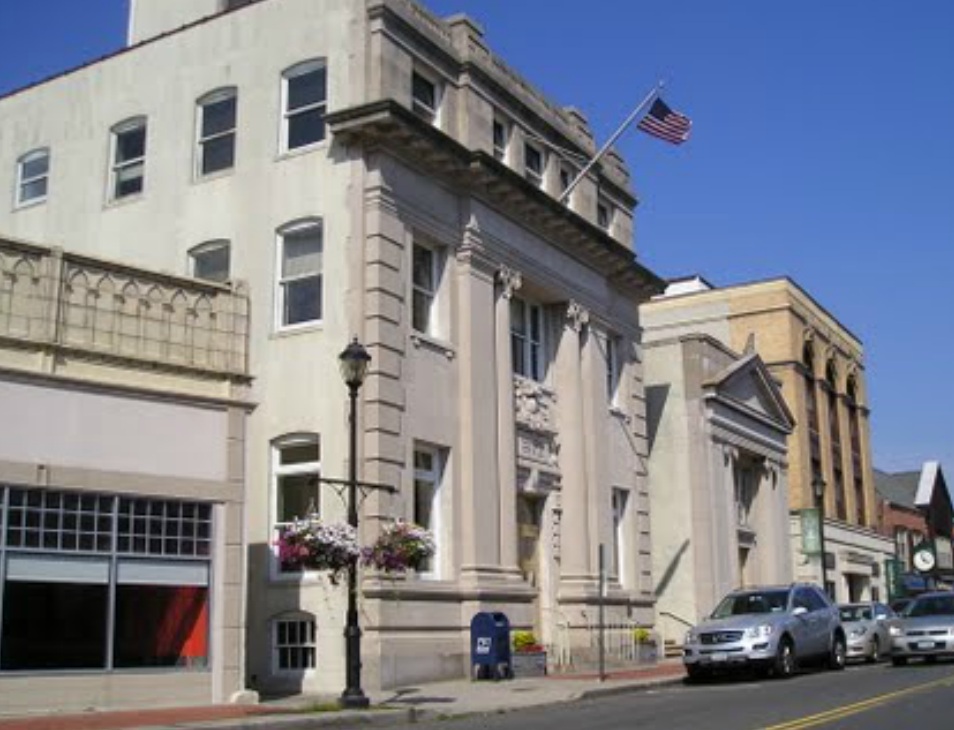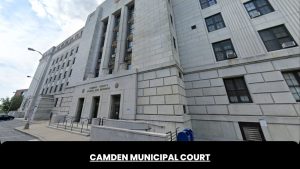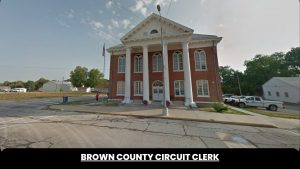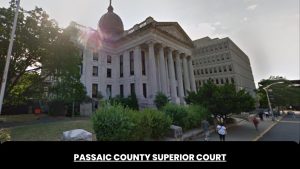Glen Cove City Court
Time
Working Hours:
Monday:
8 am–4:30 pm
Tuesday:
8 am–4:30 pm
Wednesday:
8 am–4:30 pm
Thursday:
8 am–4:30 pm
Friday:
8 am–4:30 pm
Saturday: closed
Sunday: closed
Connect with a Attorney
The Glen Cove City Court is a critical part of the judicial system in the city of Glen Cove, New York and surrounding communities. As a court of limited jurisdiction, it handles a wide range of civil, criminal, traffic, and local ordinance violations that deeply impact local residents and businesses. The court has a long and evolving history within the city and state court system. This article will provide an in-depth overview of the Glen Cove City Court, examining its history and origins, jurisdiction and operations, court processes and procedures, notable cases, comparisons to other courts, records access, and future outlook. Understanding the role and function of this essential local court provides insight into how justice is administered and lives shaped at the community level.
Location and Contact Information
The Glen Cove City Court’s location at 13 Glen Street places it at the heart of the city, ensuring accessibility for residents seeking legal assistance. The provided phone number, 516-403-2441, serves as a lifeline for individuals seeking information and guidance. Additionally, the fax number, 516-403-2457, offers an alternate means of communication. Having easily accessible contact information is essential, as legal matters often necessitate prompt responses and clear channels of communication.
Role of Glen Cove City Court
With jurisdiction over a range of cases, the Glen Cove City Court plays a crucial role in the local legal landscape. Small claims, traffic violations, and criminal cases fall under its purview, making it a significant player in addressing a variety of legal issues that impact the community. Local courts like Glen Cove’s provide a convenient avenue for residents to seek justice without having to navigate larger and more complex judicial entities.
Overview of Nassau County Supreme Court
The Nassau County Supreme Court stands as a separate but interconnected entity to the Glen Cove City Court. As a higher-level court, the Supreme Court handles more complex civil and criminal cases. It is crucial to differentiate between the two courts, as they cater to distinct legal needs within the region.
Legal Proceedings and Services
Within the Glen Cove City Court, legal processes unfold, ensuring that justice is served efficiently and transparently. From arraignments to trials, the court’s activities are designed to uphold the principles of fairness and due process. Beyond trials, the court also offers essential services such as filing legal documents, paying fines, and accessing court records. These services form the backbone of the court’s commitment to serving the community.
Courtroom Etiquette and Procedures
To maintain decorum and respect within the courtroom, specific etiquette and procedures are expected from all parties involved. Proper attire, punctuality, and adherence to court rules are integral to ensuring smooth proceedings. Respecting courtroom etiquette not only fosters a professional environment but also upholds the dignity of the legal process.
Legal Professionals and Staff
The Glen Cove City Court is staffed by a dedicated team, including judges and attorneys, who bring their expertise to every case. These legal professionals collaborate to ensure that cases are heard, analyzed, and decided upon with the utmost integrity. Additionally, the court’s support staff plays a vital role in managing administrative tasks, contributing to the efficient functioning of the court.
Community Impact and Engagement
Beyond its legal functions, the Glen Cove City Court strives to be an active participant in the community. Outreach programs, workshops, and educational sessions are often organized to enhance legal literacy and engage residents. By fostering a strong connection with the community, the court demonstrates its commitment to not only addressing legal matters but also enriching lives through knowledge.
Navigating the Legal System
For individuals who find themselves entangled in legal matters, understanding how to interact with the Glen Cove City Court is of paramount importance. Seeking legal representation, understanding court documents, and adhering to court dates are crucial steps that ensure a smooth interaction with the legal system.
Technological Advancements in Court Services
In keeping with the digital age, the Glen Cove City Court has embraced technological advancements to streamline its operations. Online case management, electronic filing, and virtual hearings have become integral parts of the court’s procedures. These innovations enhance accessibility and convenience for all parties involved.
Legal Resources and Support
Recognizing that legal challenges can be daunting, the Glen Cove City Court provides access to resources that guide individuals through the legal process. Legal aid services, self-help resources, and informational materials are made available to empower individuals with the knowledge they need to navigate their legal journey.
History of Glen Cove City Court
Origins and Establishment
The Glen Cove City Court traces its origins back to the late 19th century when Glen Cove was incorporated as a city in 1883 within the Town of Oyster Bay in Nassau County, New York. Prior to incorporation, it was known simply as Glen Cove and the surrounding area was part of the Town of Oyster Bay.
As a newly minted city, Glen Cove was granted a city charter and authorized to establish key government institutions, including its own police department, fire department, and critically, a city court system. This allowed the city to handle local legal matters through its own local court rather than relying on the broader county-level court system.
The exact year that the Glen Cove City Court was formally established is unclear, but is believed to be around the same time the city was incorporated in the early 1880s. The court likely began operating out of the original Glen Cove City Hall building and its jurisdiction and operations evolved over the next few decades in step with the city’s development.
Key Developments and Changes Over Time
During the early 20th century, the city government built the current Glen Cove City Hall building to consolidate city offices, departments and courts. The distinctive brick neoclassical revival style building was constructed in 1913 and originally housed the police department, city administration offices, library and the city court facilities.
For most of the 20th century, the Glen Cove City Court handled routine local cases including traffic infractions, minor crimes, civil disputes, local ordinance violations and small claims matters. Judges were initially appointed by the city government and city court jobs provided employment opportunities for local residents.
In 1977, operation of the court was reorganized when New York State began requiring city judges to be elected officials rather than political appointees. This changed the way city court judges were selected but did not alter the court’s jurisdiction or role. The court continued functioning much as it had for decades.
One notable modern change came in the late 1990s when New York adopted unified state court administration. This led to city courts like Glen Cove falling under centralized state court oversight rather than local control. However, the jurisdictional authority and day-to-day functions of the Glen Cove City Court itself remained largely intact.
Jurisdiction and Operations of Glen Cove City Court
Geographic Jurisdiction
As a city court, the Glen Cove City Court holds limited jurisdiction over legal matters arising within the boundaries of the city of Glen Cove. However, the geographic jurisdiction of the court also extends into certain nearby communities including Sea Cliff, Glen Head and Glenwood Landing since residents of those areas are considered part of the Glen Cove school district.
This means the court has the authority to adjudicate cases for both infractions committed and residents living within this relatively small but densely populated area of northwest Nassau County on Long Island. It does not have authority over cases arising outside its jurisdictional boundaries in the broader county, which are handled by higher district, supreme and county courts.
Types of Cases Handled
Given its status as a court with limited local jurisdiction, the types of legal cases handled by Glen Cove City Court are relatively minor in nature compared to higher-level trial courts. According to New York state law, city courts like Glen Cove are authorized to handle the following types of cases:
- Civil matters involving claims up to $15,000
- Small claims proceedings
- Eviction proceedings and landlord/tenant disputes
- Traffic infractions, DWI charges, and minor local ordinance violations
- Arraignments, preliminary hearings and bail setting for misdemeanor criminal offenses
- Animal control proceedings
More serious civil lawsuits involving larger sums of money and felony criminal matters must be transferred to higher courts at the county or state level. But the City Court deals with high volumes of low-level cases that have a major impact on residents.
Courtroom and Facilities
The Glen Cove City Court is housed on the ground floor of Glen Cove City Hall located at 9 Glen Cove Ave. It utilizes one main courtroom for proceedings as well as ancillary rooms for conferences and meetings. The courtroom contains seating for parties and observers, along with designated areas for the judge, court clerks and officers, attorneys, jury and witnesses.
Court offices are located down the hall from the courtroom where the court’s staff handles paperwork, case files and scheduling. The court facilities also include small claims petioner waiting area, cashier booth to handle payments of court fees and fines, and access to the county law library. Security is provided by court officers.
Staff and Personnel
Under the statewide court unification rules, the daily operations of the Glen Cove City Court are managed by non-judicial court staff appointed by the Office of Court Administration. Court personnel include:
- Court clerks who maintain records, schedule hearings, manage the jury selection process and perform other administrative tasks. The Chief Clerk supervises the clerical staff and court services.
- Court officers who provide security, enforce court rules and assist the judge in the courtroom.
- Court interpreters who translate for non-English speakers during proceedings.
- Court reporters who transcribe offical records of trials and hearings.
The lone judge who presides over the City Court is independently elected by voters and has ultimate authority in the courtroom. The judge is currently Honorable Richard McCord, who was elected in 2006 and ran unopposed in 2016. Appeals from City Court decisions go to the Nassau County Court.
Court Process in Glen Cove City Court
The court process for matters heard in the Glen Cove City Court generally follow standardized procedures used in most city courts across New York state. Here is an overview of the typical court process:
Filing a Case
To initiate a legal proceeding in City Court, the plaintiff or petitioner must properly file paperwork and applicable fees to open a case. For civil suits and small claims cases, forms must be filled out explaining the nature of the dispute and damages sought. For traffic tickets and local ordinance violations, charges are filed directly by the ticketing police agency.
Many cases are initiated through mail delivery of forms to the court clerk’s office. Some types of cases also allow for online filing on the court website. When a case is opened, filing fees apply which vary based on the type of suit. Fee waivers are available for indigent litigants. Once filed and docketed, cases are scheduled for an intial hearing by the court clerk’s office.
Appearing in Court
On the date set by the court for the initial hearing or proceeding, the parties in the case must appear at the courthouse and check in with the clerk. From there, litigants are directed to the correct courtroom where they will wait for their case to be called before the judge. Proper courtroom attire and conduct are required.
If necessary, litigants may consult with attorneys prior to the hearing for legal advice. Attorneys will then appear and handle the proceedings on their client’s behalf. However, many City Court cases involve ordinary citizens representing themselves without a lawyer’s assistance.
Typical Proceedings and Protocols
The exact nature of the court proceedings will vary considerably based on the type of case being heard. However, most matters follow a similar sequence of events:
- Case is called by the court officer and judge enters courtroom
- Parties present themselves at their designated seats
- Judge advises parties of rights, charges, claims at issue
- Plaintiff/prosecution makes opening statement
- Defendant makes opening statement
- Plaintiff/prosecution calls witnesses and presents evidence
- Defendant cross-examines witnesses
- Defendant presents case, witnesses and evidence
- Closing arguments are made by each side
- Judge renders verdict, decision or adjourns for deliberation
Throughout the proceedings, the judge maintains order and makes rulings on procedural disputes between parties. Formal rules of evidence and procedure apply. Hearings tend to progress quickly given the high caseloads in city courts.
Options after Court Decision
Once the judge reaches a decision, the case is resolved in one of several ways:
- Civil suits result in a monetary judgement for plaintiff or dismissal of the case. Defendants may file appeals within 30 days.
- Traffic and ordinance violations end in conviction, acquittal or dropped charges. Fines are assessed for convictions. Appeals must be filed within 30 days.
- Eviction cases end with possession granted to the landlord or the parties entering a stipulation allowing tenant to remain. Tenants may have 10 days to appeal eviction orders.
- Criminal cases lead to conviction, acquittal or dropped charges. Convictions impose jail time, probation or fines. Appeals may be filed within 30 days.
After appeals windows close, all judgements and orders become final. Fines must be paid, evictions completed, and jail terms served as ordered. The court maintains records on the status of all cases under its jurisdiction.
Notable Cases and Events in Glen Cove City Court
While most of the cases handled by the Glen Cove City Court are minor and routine, the occasional high-profile matter attracts public attention and leaves an imprint on the local justice system. Here are some of the more well-known cases and events that have occured in City Court over the past 50 years:
People v. O’Brien – 1974
This case involved charges against prominent real estate developer Sean O’Brien who was accused of bribing city officials to obtain approval for zoning variances. O’Brien appeared before City Court for arraignment in 1974, drawing major press coverage. However, the case was quickly transferred to Nassau County Court given the serious felony charges. O’Brien was later convicted and sentenced to 5 years probation and fines. The case highlighted issues of corruption in Glen Cove’s political system.
Changes to Traffic Court Procedures – Early 1990s
In response to longstanding complaints about treatment of traffic ticket recipients in City Court, a series of reforms were implemented to traffic case procedures in the early 1990s. Changes included reducing punitive fines, allowing deferred dispositions, and granting extensions for traffic school. The reforms made City Court more accommodating to motorists cited for routine violations.
Jury Reform – 2005
In 2005, the City Court implemented a shift from using volunteer jurors to utilizing jurors randomly selected from the NY State juror rolls. This change brought the court in line with other state courts and resulted in juries that were more representative of the community’s demographics. Minority groups had been chronically underrepresented under the old volunteer juror system.
Judge McCord Elected – 2006
The election of Hon. Richard McCord as City Court Judge in 2006 brought turnover to the bench for the first time in decades. Judge McCord ran on a platform of improving access and efficiency through the embrace of technology. During his lengthy tenure, he has helped modernize Court operations. In 2016, he ran unopposed for reelection, indicating community support for his work on the Court.
While not handling extremely high-profile cases, the Glen Cove City Court still plays an important role in the community and has worked to reform itself over time to better serve local residents and businesses.
Comparisons to Other Courts
As a single-judge city court with limited jurisdiction, the Glen Cove City Court differs in significant ways from other courts at the town, village, district and supreme court levels in New York State. Here are some key distinguishing factors:
Smaller Size and Scope
Unlike larger town and village courts that may have multiple judges and cover wider geographic areas, Glen Cove City Court operates with just one judge overseeing a compact jurisdiction. The relatively minor cases it adjudicates contrasts with felony crimes, major lawsuits and appellate matters heard in higher district and supreme courts.
City vs Town/Village Courts
While Glen Cove City Court shares similarities with other local town and village courts, it is distinct in handling the caseload of a more urban, populated city rather than less dense suburban and rural areas. The city setting impacts the types of cases and litigants the court encounters. City courts also interface more with city police rather than county sheriffs.
More Formal Operations
Procedures in the Glen Cove City Court tend to adhere closer to state court norms and rules than very informal justice courts in rural towns. However, the City Court lacks the full range of judges, staffing and resources found in the county-level district courts and supreme courts.
Judicial Position Differences
Glen Cove City Court judges hold 4-year elected terms which offers less job security than the 14-year appointed terms of District Court judges. But City Court judges have greater status than non-lawyer town and village court justices who are elected to 4-year terms.
So while bearing similarities to other local courts, the Glen Cove City Court occupies an intermediate level in the New York state judicial hierarchy. It brings more formality than rural town/village courts but less than county-level trial courts. The city context also shapes its jurisidiction and caseloads.
Accessing Court Records and Documents
The Glen Cove City Court maintains various records and documents on all cases filed and adjudicated there. These records are made available to the public with certain limitations:
Online Resources
For basic case information, the New York State Unified Court System provides an online eCourts public records access portal. This allows lookups of civil, criminal and traffic cases by party name, case number or date. Basic docket information, upcoming court dates, and dispositions are available. However, full case documents cannot be viewed online.
In-Person Review
To access actual case files and documents, members of the public must visit the City Court clerk’s office in person during business hours. Valid identification must be presented to access records. Documents can be viewed and printed or copied for a per page fee. Certain sensitive documents like police reports may require a court order.
Contacting the Court
The public can also request records or information by phone, mail or email to the Glen Cove City Court. Contact information is available online through court websites and case documents can be mailed out upon approved requests and payment of copying fees.
City courts are constrained in the online access they can provide compared to higher state courts. But the public still has options to access and obtain City Court records with proper procedures followed. The court staff can also assist with inquiries on pending cases.
Future Outlook for Glen Cove City Court
Like any institution, the Glen Cove City Court will continue evolving to meet the demands of an ever-changing local community and justice system. Some possible changes on the horizon include:
Facilities Upgrades
At over 100 years old, the historic Glen Cove City Hall building that houses the Court has maintenance needs that could require renovation and facilities upgrades in the coming years. This could modernize Court workspaces.
Staffing Changes
The statewide court staffing shortage may impact the City Court as clerks and officers retire. Replacement staff may be harder to come by, requiring procedural changes to maintain operations with fewer personnel.
Caseload Increases
As Long Island’s population grows and Glen Cove further densifies with new development, the Court may see its civil, criminal and traffic caseloads swell, placing strains on the lone City Judge. Additional judges may become necessary to handle higher volumes.
New Technology Adoption
To keep pace with society’s tech evolution, the Court will need to continue integrating new technologies into its operations, including electronic filing, virtual hearings, digital records and e-payment systems. This can improve efficiency but will require investment and training.
The specific path forward for the Glen Cove City Court is unclear but its importance as a pillar of local justice remains unchanged. While adapting to evolving conditions, the Court will still need to deliver fair, accessible rulings on the many cases affecting residents of this Long Island city.
Conclusion
For over a century, the Glen Cove City Court has served a vital function within the justice system of Long Island’s North Shore. As the judicial body handling a wide range of minor civil, criminal and traffic cases arising within the city, it has immense influence over the lives of local residents and businesses. The Court’s long history has seen it progress from a purely local institution to one subject to centralized state court administration, all while retaining its core purpose.
The Court’s small physical size and limited jurisdiction belie its tremendous importance in providing due process and adjudicating routine but critical cases regarding evictions, small claims, traffic violations, misdemeanor charges and quality of life disputes between neighbors. Matters often addressed quickly receive intense focus from those immediately affected.
Navigating the dense bureaucracies of city courts can prove challenging for citizens. Yet the application of simplified court procedures and principles of justice at the community level is what renders courts accessible and approachable for ordinary people. With a justice system coming under increasing scrutiny, the Glen Cove City Court represents an example of positive impact achieved through small local institutions.







